Fleurs du Mal Magazine


Or see the index
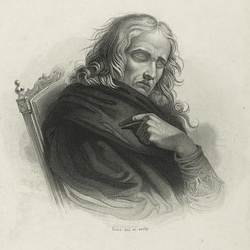
Blind Old Milton
Place me once more, my daughter, where the sun
May shine upon my old and time-worn head,
For the last time, perchance. My race is run;
And soon amidst the ever-silent dead
I must repose, it may be, half forgot.
Yes! I have broke the hard and bitter bread
For many a year, and with those who trembled not
To buckle on their armor for the fight,
And set themselves against the tyrant’s lot;
And I have never bowed me to his might,
Nor knelt before him — for I bear within
My heart the sternest consciousness of right,
And that perpetual hate of gilded sin
Which made me what I am; and though the stain
Of poverty be on me, yet I win
More honor by it, than the blinded train
Who hug their willing servitude, and bow
Unto the weakest and the most profane.
Therefore, with unencumbered soul I go
Before the footstool of my Maker, where
I hope to stand as undebased as now!
Child! is the sun abroad? I feel my hair
Borne up and wafted by the gentle wind,
I feel the odors that perfume the air,
And hear the rustling of the leaves behind.
Within my heart I picture them, and then
I almost can forget that I am blind,
And old, and hated by my fellow-men.
Yet would I fain once more behold the grace
Of nature ere I die, and gaze again
Upon her living and rejoicing face —
Fain would I see thy countenance, my child,
My comforter! I feel thy dear embrace —
I hear thy voice, so musical and mild,
The patient sole interpreter, by whom
So many years of sadness are beguiled;
For it hath made my small and scanty room
Peopled with glowing visions of the past.
But I will calmly bend me to my doom,
And wait the hour which is approaching fast,
When triple light shall stream upon mine eyes,
And heaven itself be opened up at last
To him who dared foretell its mysteries.
I have had visions in this drear eclipse
Of outward consciousness, and clomb the skies,
Striving to utter with my earthly lips
What the diviner soul had half divined,
Even as the Saint in his Apocalypse
Who saw the inmost glory, where enshrined
Sat He who fashioned glory. This hath driven
All outward strife and tumult from my mind,
And humbled me, until I have forgiven
My bitter enemies, and only seek
To find the straight and narrow path to heaven.
Yet I am weak — oh! how entirely weak,
For one who may not love nor suffer more!
Sometimes unbidden tears will wet my cheek,
And my heart bound as keenly as of yore.
Responsive to a voice, now hushed to rest,
Which made the beautiful Italian shore,
In all its pomp of summer vineyards drest,
And Eden and a Paradise to me.
Do the sweet breezes from the balmy west
Still murmur through thy groves, Parthenope,
In search of odors from the orange bowers?
Still, on thy slopes of verdure, does the bee
Cull her rare honey from the virgin flowers?
And Philomel her plaintive chaunt prolong
‘Neath skies more calm and more serene than ours,
Making the summer one perpetual song?
Art thou the same as when in manhood’s pride
I walked in joy thy grassy meads among,
With that fair youthful vision by my side,
In whose bright eyes I looked — and not in vain?
O my adorèd angel! O my bride!
Despite of years, and woe, and want, and pain,
My soul yearns back towards thee, and I seem
To wander with thee, hand in hand, again,
By the bright margins of that flowing stream.
I hear again thy voice, more silver-sweet
Than fancied music floating in a dream,
Possess my being; from afar I greet
The waving of thy garments in the glade,
And the light rustling of thy fairy feet —
What time as one half eager, half afraid,
Love’s burning secret faltered on my tongue,
And tremulous looks and broken words betrayed
The secret of the heart from whence they sprung.
Ah me! the earth that rendered thee to heaven
Gave up an angel beautiful and young,
Spotless and pure as snow when freshly driven;
A bright Aurora for the starry sphere
Where all is love, and even life forgiven.
Bride of immortal beauty — ever dear!
Dost thou await me in thy blest abode!
While I, Tithonus-like, must linger here,
And count each step along the rugged road;
A phantom, tottering to a long-made grave.
And eager to lay down my weary load.
I who was fancy’s lord, am fancy’s slave.
Like the low murmurs of the Indian shell
Ta’en from its coral bed beneath the wave,
Which, unforgetful of the ocean’s swell,
Retains within its mystic urn the hum
Heard in the sea-grots where Nereids dwell —
Old thoughts still haunt me — unawares they come
Between me and my rest, nor can I make
Those aged visitors of sorrow dumb.
Oh, yet awhile, my feeble soul, awake!
Nor wander back with sullen steps again;
For neither pleasant pastime canst thou take
In such a journey, nor endure the pain.
The phantoms of the past are dead for thee;
So let them ever uninvoked remain,
And be thou calm, till death shall set thee free.
Thy flowers of hope expanded long ago,
Long since their blossoms withered on the tree:
No second spring can come to make them blow,
But in the silent winter of the grave
They lie with blighted love and buried woe.
I did not waste the gifts which nature gave,
Nor slothful lay in the Circean bower;
Nor did I yield myself the willing slave
Of lust for pride, for riches, or for power.
No! in my heart a nobler spirit dwelt;
For constant was my faith in manhood’s dower;
Man — made in God’s own image — and I felt
How of our own accord we courted shame,
Until to idols like ourselves we knelt,
And so renounced the great and glorious claim
Of freedom, our immortal heritage.
I saw how bigotry, with spiteful aim,
Smote at the searching eyesight of the sage;
How Error stole behind the steps of Truth,
And cast delusion on the sacred page.
So, as a champion, even in early youth
I waged by battle with a purpose keen:
Nor feared the hand of terror, nor the tooth
Of serpent jealousy. And I have been
With starry Galileo in his cell —
That wise magician with the brow serene,
Who fathomed space; and I have seen him tell
The wonders of the planetary sphere,
And trace the ramparts of heaven’s citadel
On the cold flag-stones of his dungeon drear.
And I have walked with Hampden and with Vane —
Names once so gracious to an English ear —
In days that never may return again.
My voice, though not the loudest, hath been heard
Whenever freedom raised her cry of pain,
And the faint effort of the humble bard
Hath roused up thousands from their lethargy,
To speak in words of thunder. What reward
Was mine, or theirs? It matters not; for I
am but a leaf cast on the whirling tide,
Without a hope or wish, except to die.
But truth, asserted once, must still abide,
Unquenchable, as are those fiery springs
Which day and night gush from the mountain-side,
Perpetual meteors girt with lambent wings,
Which the wild tempest tosses to and fro,
But cannot conquer with the force it brings.
Yet I, who ever felt another’s woe
More keenly than my own untold distress;
I, who have battled with the common foe,
And broke for years the bread of bitterness;
Who never yet abandoned or betrayed
The trust vouchsafed me, nor have ceased to bless,
Am left alone to wither in the shade,
A weak old man, deserted by his kind —
Whom none will comfort in his age, nor aid!
Oh, let me not repine! A quiet mind
Conscious and upright, needs no other stay;
Nor can I grieve for what I leave behind,
In the rich promise of eternal day.
Henceforth to me the world is dead and gone,
Its thorns unfelt, its roses cast away:
And the old pilgrim, weary and alone,
Bowed down with travel, at his Master’s gate
Now sits, his task of life-long labor done,
Thankful for rest, although it comes so late,
After sore journey through the world of sin,
In hope, and prayer, and wistfulness to wait,
Until the door shall ope, and let him in.
William Edmondstoune Aytoun
(1813 — 1865)
Blind Old Milton
• fleursdumal.nl magazine
More in: # Classic Poetry Archive, Archive A-B, Archive A-B, Milton, John
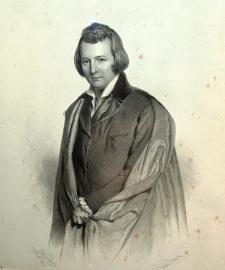
Auf Flügeln des Gesanges . . .
Auf Flügeln des Gesanges,
Herzliebchen, trag ich dich fort,
Fort nach den Fluren des Ganges,
Dort weiß ich den schönsten Ort.
Dort liegt ein rotblühender Garten
Im stillen Mondenschein;
Die Lotosblumen erwarten
Ihr trautes Schwesterlein.
Die Veilchen kichern und kosen,
Und schaun nach den Sternen empor;
Heimlich erzählen die Rosen
Sich duftende Märchen ins Ohr.
Es hüpfen herbei und lauschen
Die frommen, klugen Gazell’n;
Und in der Ferne rauschen
Des heiligen Stromes Well’n.
Dort wollen wir niedersinken
Unter dem Palmenbaum,
Und Liebe und Ruhe trinken
Und träumen seligen Traum.
Heinrich Heine
(1797-1856)
Auf Flügeln des Gesanges . . .
• fleursdumal.nl magazine
More in: Archive G-H, Archive G-H, Heine, Heinrich
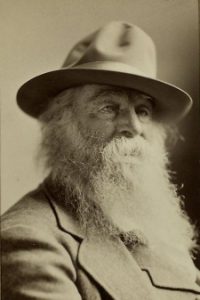
Look Down, Fair Moon
Look down, fair moon, and bathe this scene;
Pour softly down night’s nimbus floods,
on faces ghastly, swollen, purple;
On the dead, on their backs, with their arms toss’d wide,
Pour down your unstinted nimbus, sacred moon.
Walt Whitman
(1819 – 1892)
Look Down, Fair Moon
• fleursdumal.nl magazine
More in: Archive W-X, Archive W-X, Whitman, Walt

Recitative
Regard the capture here, O Janus-faced,
As double as the hands that twist this glass.
Such eyes at search or rest you cannot see;
Reciting pain or glee, how can you bear!
Twin shadowed halves: the breaking second holds
In each the skin alone, and so it is
I crust a plate of vibrant mercury
Borne cleft to you, and brother in the half.
Inquire this much-exacting fragment smile,
Its drums and darkest blowing leaves ignore,–
Defer though, revocation of the tears
That yield attendance to one crucial sign.
Look steadily–how the wind feasts and spins
The brain’s disk shivered against lust. Then watch
While darkness, like an ape’s face, falls away,
And gradually white buildings answer day.
Let the same nameless gulf beleaguer us–
Alike suspend us from atrocious sums
Built floor by floor on shafts of steel that grant
The plummet heart, like Absalom, no stream.
The highest tower,–let her ribs palisade
Wrenched gold of Nineveh;–yet leave the tower.
The bridge swings over salvage, beyond wharves;
A wind abides the ensign of your will . . .
In alternating bells have you not heard
All hours clapped dense into a single stride?
Forgive me for an echo of these things,
And let us walk through time with equal pride.
Hart Crane
(1889 – 1932)
Recitative
• fleursdumal.nl magazine
More in: Archive C-D, Archive C-D, Crane, Hart
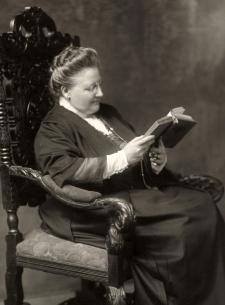
The Exeter Road
Panels of claret and blue which shine
Under the moon like lees of wine.
A coronet done in a golden scroll,
And wheels which blunder and creak as they roll
Through the muddy ruts of a moorland track.
They daren’t look back!
They are whipping and cursing the horses. Lord!
What brutes men are when they think they’re scored.
Behind, my bay gelding gallops with me,
In a steaming sweat, it is fine to see
That coach, all claret, and gold, and blue,
Hop about and slue.
They are scared half out of their wits, poor souls.
For my lord has a casket full of rolls
Of minted sovereigns, and silver bars.
I laugh to think how he’ll show his scars
In London to-morrow. He whines with rage
In his varnished cage.
My lady has shoved her rings over her toes.
‘Tis an ancient trick every night-rider knows.
But I shall relieve her of them yet,
When I see she limps in the minuet
I must beg to celebrate this night,
And the green moonlight.
There’s nothing to hurry about, the plain
Is hours long, and the mud’s a strain.
My gelding’s uncommonly strong in the loins,
In half an hour I’ll bag the coins.
‘Tis a clear, sweet night on the turn of Spring.
The chase is the thing!
How the coach flashes and wobbles, the moon
Dripping down so quietly on it. A tune
Is beating out of the curses and screams,
And the cracking all through the painted seams.
Steady, old horse, we’ll keep it in sight.
‘Tis a rare fine night!
There’s a clump of trees on the dip of the down,
And the sky shimmers where it hangs over the town.
It seems a shame to break the air
In two with this pistol, but I’ve my share
Of drudgery like other men.
His hat? Amen!
Hold up, you beast, now what the devil!
Confound this moor for a pockholed, evil,
Rotten marsh. My right leg’s snapped.
‘Tis a mercy he’s rolled, but I’m nicely capped.
A broken-legged man and a broken-legged horse!
They’ll get me, of course.
The cursed coach will reach the town
And they’ll all come out, every loafer grown
A lion to handcuff a man that’s down.
What’s that? Oh, the coachman’s bulleted hat!
I’ll give it a head to fit it pat.
Thank you! No cravat.
~They handcuffed the body just for style,
And they hung him in chains for the volatile
Wind to scour him flesh from bones.
Way out on the moor you can hear the groans
His gibbet makes when it blows a gale.
‘Tis a common tale.~
Amy Lowell
(1874 – 1925)
The Exeter Road
Poem
• fleursdumal.nl magazine
More in: Archive K-L, Archive K-L, Lowell, Amy
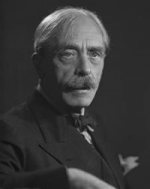
Féerie
La lune mince verse une lueur sacrée,
Toute une jupe d’un tissu d’argent léger,
Sur les bases de marbre où vient l’Ombre songer
Que suit d’un char de perle une gaze nacrée.
Pour les cygnes soyeux qui frôlent les roseaux
De carènes de plume à demi lumineuse,
Elle effeuille infinie une rose neigeuse
Dont les pétales font des cercles sur les eaux . . .
Est-ce vivre ?… Ô désert de volupté pâmée
Où meurt le battement faible de l’eau lamée,
Usant le seuil secret des échos de cristal . . .
La chair confuse des molles roses commence
À frémir, si d’un cri le diamant fatal
Fêle d’un fil de jour toute la fable immense.
Paul Valéry
(1871-1945)
Féerie
Poème
Album de vers anciens
• fleursdumal.nl magazine
More in: Archive U-V, Archive U-V, Valéry, Paul

The Realists
Hope that you may understand!
What can books of men that wive
In a dragon-guarded land,
Paintings of the dolphin-drawn
Sea-nymphs in their pearly wagons
Do, but awake a hope to live
That had gone
With the dragons?
William Butler Yeats
(1865-1939)
The Realists
• fleursdumal.nl magazine
More in: Archive Y-Z, Archive Y-Z, Yeats, William Butler

I Dream’d In A Dream
I dream’d in a dream,
I saw a city invincible to the attacks
of the whole of the rest of the earth;
I dream’d that was the new City of Friends;
Nothing was greater there than the quality
of robust love – it led the rest;
It was seen every hour in the actions
of the men of that city,
And in all their looks and words.
Walt Whitman
(1819 – 1892)
I Dream’d In A Dream
• fleursdumal.nl magazine
More in: Archive W-X, Archive W-X, Whitman, Walt

Im süßen Traum,
bei stiller Nacht
Im süßen Traum, bei stiller Nacht,
Da kam zu mir, mit Zaubermacht,
Mit Zaubermacht, die Liebste mein,
Sie kam zu mir ins Kämmerlein.
Ich schau sie an, das holde Bild!
Ich schau sie an, sie lächelt mild,
Und lächelt, bis das Herz mir schwoll,
Und stürmisch kühn das Wort entquoll:
»Nimm hin, nimm alles, was ich hab,
Mein Liebstes tret ich gern dir ab,
Dürft ich dafür dein Buhle sein,
Von Mitternacht bis Hahnenschrein.«
Da staunt’ mich an gar seltsamlich,
So lieb, so weh und inniglich,
Und sprach zu mir die schöne Maid:
»Oh, gib mir deine Seligkeit!«
»Mein Leben süß, mein junges Blut,
Gäb ich, mit Freud’ und wohlgemut,
Für dich, o Mädchen, engelgleich –
Doch nimmermehr das Himmelreich.«
Wohl braust hervor mein rasches Wort,
Doch blühet schöner immerfort,
Und immer spricht die schöne Maid:
»Oh, gib mir deine Seligkeit!«
Dumpf dröhnt dies Wort mir ins Gehör,
Und schleudert mir ein Glutenmeer
Wohl in der Seele tiefsten Raum;
Ich atme schwer, ich atme kaum. –
Das waren weiße Engelein,
Umglänzt von goldnem Glorienschein;
Nun aber stürmte wild herauf
Ein gräulich schwarzer Koboldhauf’.
Die rangen mit den Engelein,
Und drängten fort die Engelein;
Und endlich auch die schwarze Schar
In Nebelduft zerronnen war. –
Ich aber wollt in Lust vergehn,
Ich hielt im Arm mein Liebchen schön;
Sie schmiegt sich an mich wie ein Reh,
Doch weint sie auch mit bitterm Weh.
Feins Liebchen weint; ich weiß warum,
Und küß ihr Rosenmündlein stumm. –
»O still, feins Lieb, die Tränenflut,
Ergib dich meiner Liebesglut!
Ergib dich meiner Liebesglut-«
Da plötzlich starrt zu Eis mein Blut;
Laut bebet auf der Erde Grund,
Und öffnet gähnend sich ein Schlund.
Und aus dem schwarzen Schlunde steigt
Die schwarze Schar; – feins Lieb erbleicht!
Aus meinen Armen schwand feins Lieb;
Ich ganz alleine stehenblieb.
Da tanzt im Kreise wunderbar,
Um mich herum, die schwarze Schar,
Und drängt heran, erfaßt mich bald,
und gellend Hohngelächter schallt.
Und immer enger wird der Kreis,
Und immer summt die Schauerweis’:
»Du gabest hin die Seligkeit,
Gehörst uns nun in Ewigkeit!«
Heinrich Heine
(1797-1856)
Im süßen Traum, bei stiller Nacht
• fleursdumal.nl magazine
More in: Archive G-H, Archive G-H, Heine, Heinrich
Ingeborg Bachmann geldt als een van de belangrijkste schrijvers van de twintigste eeuw.
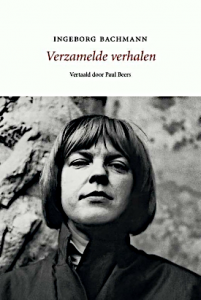 De stoutmoedigheid van de taal, de scherpte van haar inzicht en de energie van het gevoel vormen vanaf het begin de onverwisselbare eigenheid van haar proza.
De stoutmoedigheid van de taal, de scherpte van haar inzicht en de energie van het gevoel vormen vanaf het begin de onverwisselbare eigenheid van haar proza.
Het laat mensen zien op het kruispunt van hun bestaan, vóór er ingrijpende beslissingen worden genomen.
Verzamelde verhalen bevat de bundel Het dertigste jaar, met de nadruk op het intellect, en de tien jaar later na een ernstige crisis gepubliceerde bundel Simultaan, met de nadruk op gevoel en liefde.
Daarnaast is de nooit eerder vertaalde vroege bundel Het veer opgenomen met een grote variatie aan onderwerpen.
Verzamelde verhalen
Auteur: Ingeborg Bachmann
Taal: Nederlands
Vertaling: Paul Beers
Uitgeverij Koppernik
Hardcover
Oorspronkelijke releasedatum
04 februari 2021
Aantal pagina’s: 504
EAN 9789083089850
€ 29.90
• fleursdumal.nl magazine
More in: - Book News, - Bookstores, Archive A-B, Archive A-B, Bachmann, Ingeborg, Celan, Paul

Deutschland.
Ein Wintermärchen
Im traurigen Monat November war’s,
Die Tage wurden trüber,
Der Wind riß von den Bäumen das Laub,
Da reist ich nach Deutschland hinüber.
Und als ich an die Grenze kam,
Da fühlt ich ein stärkeres Klopfen
In meiner Brust, ich glaube sogar
Die Augen begunnen zu tropfen.
Und als ich die deutsche Sprache vernahm,
Da ward mir seltsam zumute;
Ich meinte nicht anders, als ob das Herz
Recht angenehm verblute.
Ein kleines Harfenmädchen sang.
Sie sang mit wahrem Gefühle
Und falscher Stimme, doch ward ich sehr
Gerühret von ihrem Spiele.
Sie sang von Liebe und Liebesgram,
Aufopfrung und Wiederfinden
Dort oben, in jener besseren Welt,
Wo alle Leiden schwinden.
Sie sang vom irdischen Jammertal,
Von Freuden, die bald zerronnen,
Vom Jenseits, wo die Seele schwelgt
Verklärt in ew’gen Wonnen.
Sie sang das alte Entsagungslied,
Das Eiapopeia vom Himmel,
Womit man einlullt, wenn es greint,
Das Volk, den großen Lümmel.
Ich kenne die Weise, ich kenne den Text,
Ich kenn auch die Herren Verfasser;
Ich weiß, sie tranken heimlich Wein
Und predigten öffentlich Wasser.
Ein neues Lied, ein besseres Lied,
O Freunde, will ich euch dichten!
Wir wollen hier auf Erden schon
Das Himmelreich errichten.
Wir wollen auf Erden glücklich sein,
Und wollen nicht mehr darben;
Verschlemmen soll nicht der faule Bauch,
Was fleißige Hände erwarben.
Es wächst hienieden Brot genug
Für alle Menschenkinder,
Auch Rosen und Myrten, Schönheit und Lust,
Und Zuckererbsen nicht minder.
Ja, Zuckererbsen für jedermann,
Sobald die Schoten platzen!
Den Himmel überlassen wir
Den Engeln und den Spatzen.
Und wachsen uns Flügel nach dem Tod,
So wollen wir euch besuchen
Dort oben, und wir, wir essen mit euch
Die seligsten Torten und Kuchen.
Ein neues Lied, ein besseres Lied!
Es klingt wie Flöten und Geigen!
Das Miserere ist vorbei,
Die Sterbeglocken schweigen.
Die Jungfer Europa ist verlobt
Mit dem schönen Geniusse
Der Freiheit, sie liegen einander im Arm,
Sie schwelgen im ersten Kusse.
Und fehlt der Pfaffensegen dabei,
Die Ehe wird gültig nicht minder –
Es lebe Bräutigam und Braut,
Und ihre zukünftigen Kinder!
Ein Hochzeitkarmen ist mein Lied,
Das bessere, das neue!
In meiner Seele gehen auf
Die Sterne der höchsten Weihe –
Begeisterte Sterne, sie lodern wild,
Zerfließen in Flammenbächen –
Ich fühle mich wunderbar erstarkt,
Ich könnte Eichen zerbrechen!
Seit ich auf deutsche Erde trat,
Durchströmen mich Zaubersäfte –
Der Riese hat wieder die Mutter berührt,
Und es wuchsen ihm neu die Kräfte.
Heinrich Heine
(1797-1856)
Deutschland. Ein Wintermärchen
• fleursdumal.nl magazine
More in: 4SEASONS#Winter, Archive G-H, Archive G-H, Heine, Heinrich

Baignée
Un fruit de chair se baigne en quelque jeune vasque,
(Azur dans les jardins tremblants) mais hors de l’eau,
Isolant la torsade aux puissances de casque,
Luit le chef d’or que tranche à la nuque un tombeau.
Éclose la beauté par la rose et l’épingle !
Du miroir même issue où trempent ses bijoux,
Bizarres feux brisés dont le bouquet dur cingle
L’oreille abandonnée aux mots nus des flots doux.
Un bras vague inondé dans le néant limpide
Pour une ombre de fleur à cueillir vainement
S’effile, ondule, dort par le délice vide,
Si l’autre, courbé pur sous le beau firmament,
Parmi la chevelure immense qu’il humecte,
Capture dans l’or simple un vol ivre d’insecte.
Paul Valéry
(1871-1945)
Baignée
Poème
Album de vers anciens
• fleursdumal.nl magazine
More in: Archive U-V, Archive U-V, Valéry, Paul
Thank you for reading Fleurs du Mal - magazine for art & literature